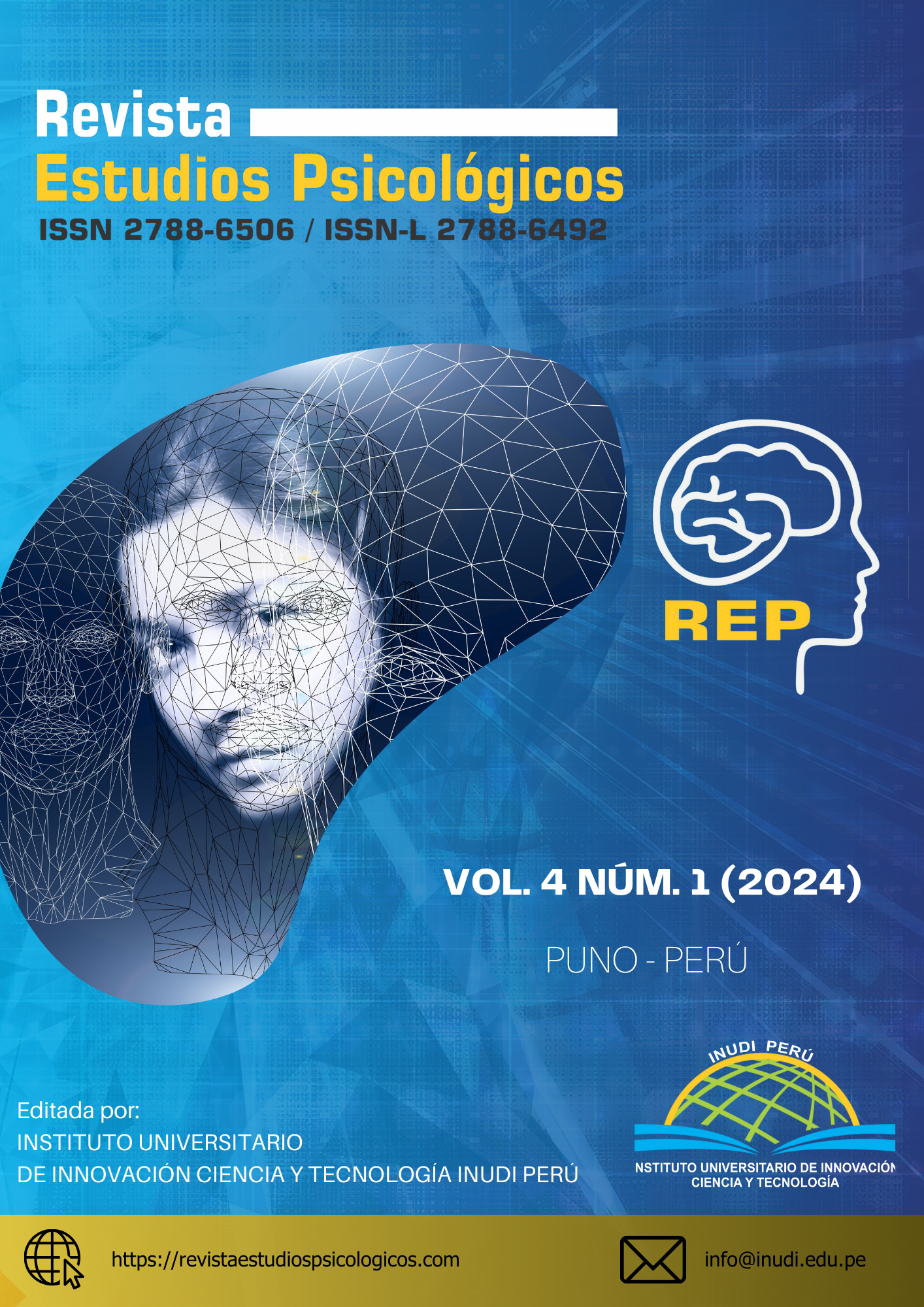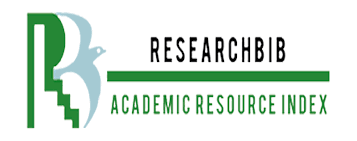Quality of life and sociodemographic variables, as explanatory variables of obesity
DOI:
https://doi.org/10.35622/j.rep.2024.01.001Keywords:
quality of life, sociodemographic, artificial neural networks, obesityAbstract
Objective: To identify variables related to quality of life and sociodemographics that could explain the percentage of body fat, as well as low-density lipoproteins, very low-density lipoproteins, total cholesterol, and triglycerides, all associated with obesity. Methods: This was a quantitative, non-experimental, convenience, and explanatory study. Participants included 320 adults with different body mass index levels, of both sexes, who were patients at the Higher School of Medicine of the National Polytechnic Institute from 2018 to 2020. We assessed and measured quality of life, lipoproteins, cholesterol, and body fat percentage. Linear regressions, categorical regressions, structural equations, and artificial neural networks were employed. Results: In the artificial neural network, the variables with the highest synaptic weight were marital status, occupation, and age; and in terms of quality of life, cognitive function, medical dependence, and physical performance. In linear models, explanatory factors included concerns, isolation, body perception, attitude towards treatment, leisure time, gender, and marital status. Conclusion: Body perception, age, medical dependence, marital status, and concerns were the input variables that explained the percentage of body fat and blood lipids related to obesity.
Estadísticas del Artículo
References
Ahmed, H. O., & Ezzat, R. F. (2019). Quality of life of obese patients after treatment with the insertion of intra-gastric balloon versus Atkins diet in Sulaimani Governorate, Kurdistan Region, Iraq. Annals of Medicine and Surgery, 37, 42–46. https://doi.org/10.1016/j.amsu.2018.11.014 DOI: https://doi.org/10.1016/j.amsu.2018.11.014
Anekwe, C. V., Jarrell, A. R., Townsend, M. J., Gaudier, G. I., Hiserodt, J. M., & Stanford, F. C. (2020). Socioeconomics of Obesity. Current Obesity Reports, 9(3), 272–279. https://doi.org/10.1007/s13679-020-00398-7 DOI: https://doi.org/10.1007/s13679-020-00398-7
Arnett, D. K., Blumenthal, R. S., Albert, M. A., Buroker, A. B., Goldberger, Z. D., Hahn, E. J., Himmelfarb, C. D., Khera, A., Lloyd-Jones, D., McEvoy, J. W., Michos, E. D., Miedema, M. D., Muñoz, D., Smith, S. C., Virani, S. S., Williams, K. A., Yeboah, J., & Ziaeian, B. (2019a). 2019 ACC/AHA Guideline on the Primary Prevention of Cardiovascular Disease: A Report of the American College of Cardiology/American Heart Association Task Force on Clinical Practice Guidelines. Circulation, 140(11). https://doi.org/10.1161/CIR.0000000000000678 DOI: https://doi.org/10.1161/CIR.0000000000000678
Arnett, D. K., Blumenthal, R. S., Albert, M. A., Buroker, A. B., Goldberger, Z. D., Hahn, E. J., Himmelfarb, C. D., Khera, A., Lloyd-Jones, D., McEvoy, J. W., Michos, E. D., Miedema, M. D., Muñoz, D., Smith, S. C., Virani, S. S., Williams, K. A., Yeboah, J., & Ziaeian, B. (2019b). 2019 ACC/AHA Guideline on the Primary Prevention of Cardiovascular Disease: A Report of the American College of Cardiology/American Heart Association Task Force on Clinical Practice Guidelines. Circulation, 140(11). https://doi.org/10.1161/CIR.0000000000000678 DOI: https://doi.org/10.1161/CIR.0000000000000677
Arzate Hernández, G. (2022). Calidad de vida relacionada con la salud en adultos con normopeso, sobrepeso y obesidad. Revista Mexicana de Trastornos Alimentarios/Mexican Journal of Eating Disorders, 10(4), 397–405. https://doi.org/10.22201/fesi.20071523e.2020.4.583 DOI: https://doi.org/10.22201/fesi.20071523e.2020.4.583
Asociación Médica Mundial. (1964). Declaración De Helsinki. Principios éticos para las investigaciones médicas en seres humanos. https://acortar.link/Omxyu
Badawi, A., Liu, C. J., Rehim, A. A., & Gupta, A. (2021). Artificial neural network to predict the effect of obesity on the risk of tuberculosis infection. Journal of public health research, 10 (1), 1985. Doi.org/10.4081/jphr.2021.1985 DOI: https://doi.org/10.4081/jphr.2021.1985
Biermayr-Jenzano P. (2020). Obesidad y género: Enfoque de género y salud alimentaria nutricional en América Latina. LAC Working Paper 8. Washington, DC: International Food Policy Research Institute. Doi.org/10.2499/p15738coll2.134021 DOI: https://doi.org/10.2499/p15738coll2.134021
Campos-Nonato, I., Galván-Valencia, Ó., Hernández-Barrera, L., Oviedo-Solís, C., & Barquera, S. (2023). Prevalencia de obesidad y factores de riesgo asociados en adultos mexicanos: resultados de la Ensanut 2022. Salud Pública de México, 65, s238–s247. https://doi.org/10.21149/14809 DOI: https://doi.org/10.21149/14809
Cámara de Diputados del Honorable Congreso de la Unión (2010). Ley Federal de protección de datos personales en posesión de los particulares. Nueva Ley DOF 05-07-2010. https://www.diputados.gob.mx/LeyesBiblio/pdf/LFPDPPP.pdf
Cuevas, A. G., Chen, R., Slopen, N., Thurber, K. A., Wilson, N., Economos, C., & Williams, D. R. (2020). Assessing the Role of Health Behaviors, Socioeconomic Status, and Cumulative Stress for Racial/Ethnic Disparities in Obesity. Obesity, 28(1), 161–170. https://doi.org/10.1002/oby.22648 DOI: https://doi.org/10.1002/oby.22648
Estrada, E., Veytia López, M., Pérez-Gallardo, L., Guadarrama, R., & Gaona, L. (2020). Relación de la grasa corporal con la alimentación emocional y calidad de la dieta en universitarios de México. Archivos Latinoamericanos de Nutrición, 70(3), 164–173. https://doi.org/10.37527/2020.70.3.002 DOI: https://doi.org/10.37527/2020.70.3.002
Fastenau, J., Kolotkin, R. L., Fujioka, K., Alba, M., Canovatchel, W., & Traina, S. (2019). A call to action to inform patient‐centred approaches to obesity management: Development of a disease‐illness model. Clinical Obesity, 9(3). https://doi.org/10.1111/cob.12309 DOI: https://doi.org/10.1111/cob.12309
Fruh, S., Williams, S., Hayes, K., Hauff, C., Hudson, G. M., Sittig, S., Graves, R. J., Hall, H., & Barinas, J. (2021). A practical approach to obesity prevention: Healthy home habits. Journal of the American Association of Nurse Practitioners, 33(11), 1055–1065. Doi.org/10.1097/JXX.0000000000000556 DOI: https://doi.org/10.1097/JXX.0000000000000556
Guerra, Walkiria; Herrera, Magaly; Fernandez, Lucía; Rodriguez Alvarez, Noslen. (2019). ISSN 2079-3480. Categorical regression model for the analysis and interpretation of statistical power. Cuban Journal of Agricultural Science, 53(1), 13–20. http://scielo.sld.cu/scielo.php?script=sci_abstract&pid=S2079-34802019000100013&lng=es&nrm=iso&tlng=en
Kolotkin, R. L., Meter, K., & Williams, G. R. (2001). Quality of life and obesity. Obesity Reviews, 2(4), 219–229. https://doi.org/10.1046/j.1467-789X.2001.00040.x DOI: https://doi.org/10.1046/j.1467-789X.2001.00040.x
World Obesity Federation (2023). World Obesity Atlas 2023. https://www.worldobesity.org/resources/resource-library/world-obesity-atlas-2023
Marín-Soto MD, Méndez-Peña B., Murillo-Tovar MM, Ocadiz-Parra I, Aguilera-Sosa VR (2019). Food craving: el enemigo oculto en la obesidad. Rev Mex Enf., 7(2), 66–70. https://doi:10.24875/ENF.19000084
Méndez-Peña BI, Murillo-Tovar MM, Leija-Alva G., Montufar Burgos II, Serena-Alvarado A, Durán-Arciniega RS, Pérez-Vielma NM, Aguilera-Sosa VR (2022). Artificial neural networks model: Neuropsychological variables and their relationship with body fat percentage in adults. Mexican Journal of Eating Disorders, 12(1), 61–70. https://doi.org/10.22201/fesi.20071523e.2022.1.718 DOI: https://doi.org/10.22201/fesi.20071523e.2022.1.718
Meza C., & Moral J. (2013). Modelos Recursivos de Índice de Masa Corporal con Variables Sociodemográficas, Funciones del Yo y Alteración Alimentaria en Mujeres Mexicanas. Psykhe (Santiago), 22(1), 55-6. https://doi.org/10.7764/psykhe.22.1.593 DOI: https://doi.org/10.7764/psykhe.22.1.593
Monereo MS., Pavón De Paz I, Molina BB., Vega PB., Alameda HC., López De La Torre CM. (2000). Health related quality of life (HRQoL) and obesity. Endocrinología y Nutrición, 47(3), 81–88. https://acortar.link/knyVYW
Moral de la Rubia J, Meza PC (2013). Atribución Causal de Sobrepeso/Obesidad y su Relación con el IMC y Alteración Alimentaria. Revista Mexicana de Trastornos Alimentarios, 4(2), 89–101. https://www.scielo.org.mx/scielo.php?script=sci_arttext&pid=S2007-15232013000200003 DOI: https://doi.org/10.1016/S2007-1523(13)71996-7
Morigny, P., Boucher, J., Arner, P., & Langin, D. (2021). Lipid and glucose metabolism in white adipocytes: pathways, dysfunction and therapeutics. Nature Reviews Endocrinology, 17(5), 276–295. https://doi.org/10.1038/s41574-021-00471-8 DOI: https://doi.org/10.1038/s41574-021-00471-8
Parra, D. I., López Romero, L. A., & Vera Cala, L. M. (2021). Calidad de vida relacionada con la salud en personas con hipertensión y diabetes mellitus. Enfermería Global, 20(2), 316–344. https://doi.org/10.6018/eglobal.423431 DOI: https://doi.org/10.6018/eglobal.423431
Pérez-Vielma, N. M., Miliar-García, Á., Gómez-López, M., Marín-Soto, M. D., Leija-Alva, G., & Aguilera-Sosa, V. R. (2021b). Food Craving in Obese Subjects: Its Correlation with Atherogenic Index and Feeding Behavior-Related Gene Expression. Acta de Investigación Psicológica, 11(3), 5–16. Doi.org/10.22201/fpsi.20074719e.2021.3.388 DOI: https://doi.org/10.22201/fpsi.20074719e.2021.3.388
Platzer, M., Fellendorf, F. T., Bengesser, S. A., Birner, A., Dalkner, N., Hamm, C., Lenger, M., Maget, A., Pilz, R., Queissner, R., Reininghaus, B., Reiter, A., Mangge, H., Zelzer, S., Kapfhammer, H.-P., & Reininghaus, E. Z. (2020). The Relationship Between Food Craving, Appetite-Related Hormones and Clinical Parameters in Bipolar Disorder. Nutrients, 13(1), 76. https://doi.org/10.3390/nu13010076 DOI: https://doi.org/10.3390/nu13010076
Ren, L., Wu, X., & Zhao, K. (2021). Obesity Mass Monitoring in Medical Big Data Based on High-Order Simulated Annealing Neural Network Algorithm. Computational Intelligence and Neuroscience, 2021, 1–10. https://doi.org/10.1155/2021/8336887 DOI: https://doi.org/10.1155/2021/8336887
Rithanasophon, T., Thitisiriwech, K., Kantavat, P., Kijsirikul, B., Iwahori, Y., Fukui, S., Nakamura, K., & Hayashi, Y. (2023). Quality of Life Prediction on Walking Scenes Using Deep Neural Networks and Performance Improvement Using Knowledge Distillation. Electronics, 12(13), 2907. https://doi.org/10.3390/electronics12132907 DOI: https://doi.org/10.3390/electronics12132907
Riveros A; Sánchez-Sosa J.J.; Groves, Mark Andrew (2009). Inventario de Calidad de Vida. Manual Moderno. https://www.manualmodernodistribuidoraelefant.com/incavisa-inventario-de-calidad--de-vida-y-salud-riveros-prueba-completa-591-p.asp
Saghafi-Asl, M., Aliasgharzadeh, S., & Asghari-Jafarabadi, M. (2020). Factors influencing weight management behavior among college students: An application of the Health Belief Model. PLOS ONE, 15(2), e0228058. https://doi.org/10.1371/journal.pone.0228058 DOI: https://doi.org/10.1371/journal.pone.0228058
Scheinker, D., Valencia, A., & Rodriguez, F. (2019). Identification of Factors Associated With Variation in US County-Level Obesity Prevalence Rates Using Epidemiologic vs Machine Learning Models. JAMA Network Open, 2(4), e192884. https://doi.org/10.1001/jamanetworkopen.2019.2884 DOI: https://doi.org/10.1001/jamanetworkopen.2019.2884
Somnuk, S., Komindr, S., Monkhai, S., Poolsawat, T., Nakphaichit, M., & Wanikorn, B. (2023). Metabolic and inflammatory profiles, gut microbiota and lifestyle factors in overweight and normal weight young thai adults. PLOS ONE, 18(7), e0288286. https://doi.org/10.1371/journal.pone.0288286 DOI: https://doi.org/10.1371/journal.pone.0288286
Szczygielska, A., Widomska, S., Jaraszkiewicz, M., Knera, P., & Muc, K. (2003). Blood lipids profile in obese or overweight patients. Annales Universitatis Mariae Curie-Sklodowska. Sectio D: Medicina, 58(2), 343–349. https://pubmed.ncbi.nlm.nih.gov/15323217/
Vallejo M. (2002). El diseño de investigación: una breve revisión metodológica. Archivos de cardiología de México, 72(1), 08-12. http://www.scielo.org.mx/scielo.php?script=sci_arttext&pid=S1405-99402002000100002&lng=es&tlng=es
World Health Organization (1998). WHOQOL User Manual. Division of Mental Health And Prevention Of Substance Abuse World Health Organization. https://iris.who.int/bitstream/handle/10665/77932/WHO_HIS_HSI_Rev.2012.03_eng.pdf?sequence=1
Published
Issue
Section
License
Copyright (c) 1969 victor Aguilera Sosa (Autor/a)

This work is licensed under a Creative Commons Attribution 4.0 International License.
La Revista Estudios Psicológicos del Instituto Universitario de Innovación Ciencia y Tecnología Inudi Perú está sobre una licencia internacional Creative Commons Atribución 4.0. Lo que permite que los archivos sean de libre acceso y distribuidos libremente.
LOS AUTORES RETIENEN SUS DERECHOS:
- Los autores retienen sus derechos de marca y patente, y tambien sobre cualquier proceso o procedimiento descrito en el artículo.
- Los autores retienen el derecho de compartir, copiar, distribuir, ejecutar y comunicar públicamente el artículo publicado en la Revista Estudios Psicológicos (por ejemplo, colocarlo en un repositorio institucional o publicarlo en un libro), con un reconocimiento de su publicación inicial.
- Los autores retienen el derecho a hacer una posterior publicación de su trabajo, de utilizar el artículo o cualquier parte de aquel (por ejemplo: una compilación de sus trabajos, notas para conferencias, tesis, o para un libro), siempre que indiquen la fuente de publicación (autores del trabajo, revista, volumen, número y fecha).



















